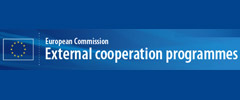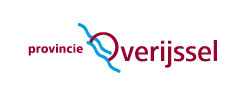Safe Water for Small Communities
Closing Conference on raising awareness for environmental protection - by encouraging the population with the aid of 'drinking water safety plans' for local water supply systems.
25.11.2012 |WECF

Rapping children from Kalyanovets, Bulgaria
In Bulgaria, more than three Million people have no access to safe sanitation. Sanitation is especially scarce in the rural areas with pit latrines as the common sight. Often toilets are not emptied for a long time and the waste water is only thrown onto the streets and courtyards. Nitrogen and microorganisms contaminate the ground-water, polluting the environment. Safety-plans for sources of drinking water are usually ignored. The general population is often unaware of the interconnections of the quality of the water, sanitation, hygiene, fertilising and health.
The World Health Organisation (WHO) has developed the innovative tool of Water Safety Plans, WSP to ensure the quality of water-systems, including small wells and small-scale local centralised water-supply systems. This allows to minimise the health risks. In those WSPs the civil society is of crucial importance, besides the authorities and the local suppliers.
A Closing conference was held in Stara Zagora in October 2012 in close partnership with the Regional Health Inspectorate Stara Zagora, Water and Sanitation Company Stara Zagora and Regional Inspectorate on Environmental and Water Protection Stara Zagora, with the kind support of Stara Zagora Municipal Government.
Read the full report of the conference here
The conference on the 18th of October was the final event of the project. The event took place at the Conference Hall of the building of Regional administration Sofia region

The guests who took part in the meeting were representatives of the Ministry of environment and water, the Ministry of health, water experts, engineers, private laboratories, journalists, NGOs, citizens, teachers and pupils.
Consultation for the needs of this closing conference was provided by the experts of the Ministry of environment and water – Mrs. Aneta Ivanova, Mrs. Emilia Georgieva and Mrs. Marinka Bogdanova and from the Ministry of health – d-r Ivo Atanasov.
The participants were welcomed by the head of the “Management of projects and programs, Ecology and Tourism” department – Mrs. Irena Petkova and Mrs. Bistra Mihaylova from Ecoworld 2007.
After a movie presentation made by the pupils from the high school in Pravets (participant in the project) the series of presentations was open by Mrs. Margriet Samwel, Project Leader, WECF, presenting Water Safety Plans as a tool for holistic approach for safe water. Mrs. Samwel presented the Water Safety Plan Compendium developed in English and Bulgarian languages during the project implementation.
Mrs. Sonya Vasileva and Mrs. Maya Pencheva presented the work implemented in the schools, the methodology used, the benefits for their pupils and communities achieved as a result of the implementation of the project. Representatives of the pupils in Vidrare presented a play related to the water.
After the schools presentations a presentation “Monitoring of water in small settlements” was made by Katalina Valkova, MD, Chief of Department, regional Health Inspectorate Stara Zagora.
The morning session was closed by a presentation of Mrs. Diana Iskreva from Earth Forever, Project coordinator for Stara Zagora Municipality, emphasizing on the needs and benefits of community mobilization in the effort to attain and maintain for safe water quality for communities.
After the lunch break Mrs. Bistra Mihaylova, Ecoworld 2007, project Coordinator for Pravets Municipality, presented the example of safe water on the territory of Pravets Municipality – participation of 3 schools in the project, 2 secondary schools in Vidrare and Razliv and language high school in Pravets. She also presented the results of the constructed wetland in the village of Vidrare, another project implemented by WECF and Ecoworld 2007 and funded by DBU as an example of sustainable solution for water quality improvement in small communities.
Prepared by: Bistra Mihaylova and Aglika Yordanova, Ecoworld 2007, Project Coordinators for Pravets Municipality
Related News
Meet the Winners of the Gender Just Climate Solutions Award at COP24
On the 70th anniversary of the Universal Declaration of Human Rights, we awarded Gender Just Climate Solutions Winners at the climate negotiations in Katowice, Poland
11.12.2018
Invitation: Gender Just Climate Solutions Award 2018
10 December, COP24 Katowice
04.12.2018
Getting to the Future We Want
4-7 November, Brussels: European Environmental Bureau’s (EEB) Annual Conference
12.11.2018
GoodFood4All
WECF and partners all over Europe start GoodFood4All Campaign
06.11.2018
#Ruralwomen: join our Women2030 campaign!
15.10.2018






































